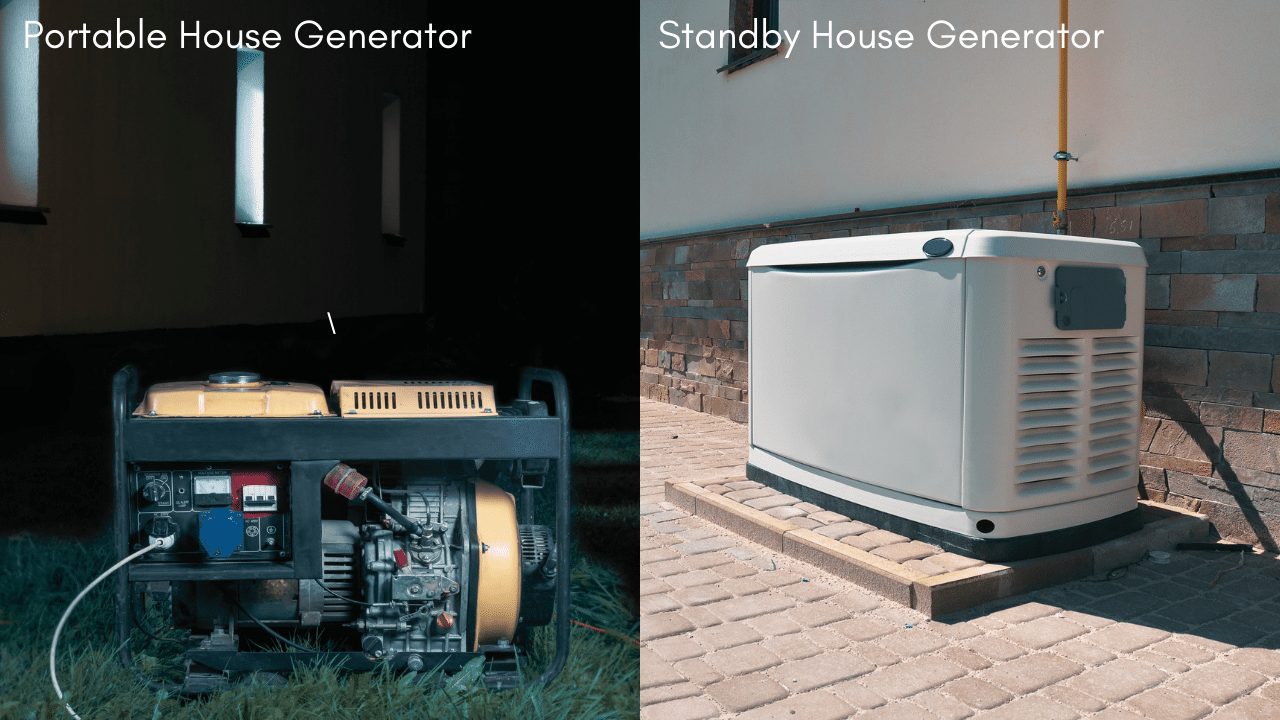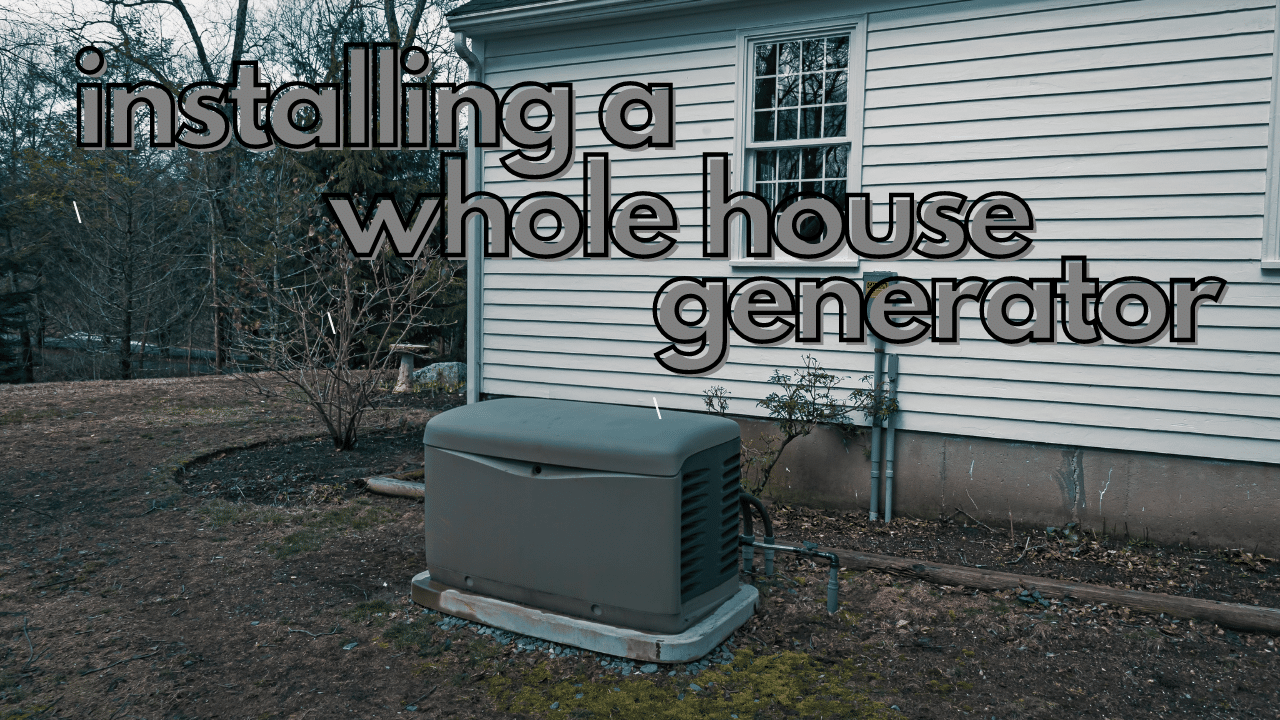Keeping your home powered and comfortable is, understandably, a big priority for most homeowners. Power outages can happen for a multitude of reasons, and they can affect any homeowner without notice. Whether it's a storm, trees downed by high winds, a vehicle collision with a utility pole, an earthquake, or simply too high of power demand in your area, outages can be inconvenient at best and life-threatening at worst. This is why many homeowners choose to purchase and install a whole house generator (also known as a standby generator) to keep their families safe and comfortable.
A whole house generator is a great option when it comes to keeping things running smoothly, but there are many elements to consider when looking at what generator is best for you. (Related: How Much Value A Whole House Generator Adds To Your Home (And Out Best Picks))
In this article, not only will we discuss the fundamentals of how a generator works and the installation process, but we will also discuss what size might be right for your 2,000 square foot home, as well as an overview of the costs involved.

Two Types of House Generators
There are two basic categories of house generators: portable and standby. Although they both come in a wide array of wattages and sizes, they are both very different in the way they operate and how they power your home. While portable generators are typically less expensive, they also require a lot of oversight, and there is a significant setup process. Standby generators, on the other hand, are very hands-off; while they are more expensive, they are probably the better option for most homeowners. Let's look more closely are this type of whole house generator (also known as a standby generator), how to calculate what size you need, and how it works.
Benefits of a Whole House Generator
As we mentioned above, there are many reasons you could lose power in your home. What many people don't realize, however, is how important it is to have a backup plan in place in the event of an outage. Having your lights go out over the course of one night may not seem like a big deal; however, think about what it would mean for you to lose power for a week, a month, or even longer? You won't be able to keep any perishable foods in the fridge. If you have any medicines that need to be kept cold, they will no longer be safe to take, and you could be putting your health and the health of your family at risk if you're in extreme temperatures without a way to either cool or heat your home to a comfortable level. For all these reasons and more, it is important to think ahead and outfit your home with a standby generator. Let's discuss the two main types of whole house generators.
How Whole House Generators Work
Standby generators are just that; they are always ready in case of an outage. These generators are hardwired to your house and are connected to a source of fuel (usually natural gas or propane) at all times. When your home experiences an outage, the standby generator is designed to turn on by itself and will keep your house powered until your regular power is restored. The great thing about these generators is that you won’t have to pick and choose which appliances or lights you can power if you experience an outage; you’ll be able to keep your entire home running without any interruption to your life.
Choosing the Right Size Generator for Your Home
Purchasing and installing the correct size generator for your home is important. If you buy a generator that is too "small," as in its wattage output is too low, then you may lose power to a valuable part of your house. A small unit may not be able to keep your air conditioning or your heating powered. Alternately, too large of a generator will waste fuel and be extremely inefficient, costing you more money and headache in the long run.
Also, generators come in many wattages, and what you need is based on your individual home energy usage. To calculate your exact needs, you'll want to list all of the outlets you'll be using, the appliances, and the lights you'll want to keep on. Once you list these out, you will add up the wattages of each, which will give you a more accurate count of the watts you need, and therefore, the size of generator you need. In the next section, we will look at a broad-stroke approach to generators, so you can have a preliminary idea of what size you're looking for based on the size of your house.
Generator Size Rules of Thumb
What size generator do I need for my 1,200 square foot home?
A house between 1,000 to 1,600 square feet with a single central air has an estimated wattage need of 4,775 to power lights and appliances and around 9,000 watts for the air conditioner. The recommended size of a standby generator is 10kW. Although smaller, these generators are not inexpensive; expect to pay at least $3,500 for a 10kW standby generator.
What size generator do I need for my 2,000 square foot home?
A house between 1,600 and 3,000 square feet with a single central air unit of 3 tons has an estimated wattage need of approximately 14,000 watts. In this case, you’ll want to start with standby generators that have a 14kW capacity. These typically run between $3,500 and $4,600.
What size generator do I need for my 3,000 square foot home?
Powering a house over 3,000 square feet is no small task. If you have two central air conditioning units, you could require up to approximately 20,000 watts or more. Look into standby generator systems that can handle a minimum of 20kW, and you may need up to 30kW depending on what all needs power. These standby generators can cost anywhere from $4,900 up to $5,300 or even more.
At the end of the day, consult your local generator professional. They will be able to walk you through what your goals are for your standby generator and go through which size will work to attain those goals in the event of an outage.

Whole House Generator Installation
Unfortunately, installing a generator is not an inexpensive process. Most homeowners will pay around $6,000; however, it can cost more depending on your home and the size of your generator. This does include delivery, setup, and what it takes to connect the generator to the fuel supply.
First, you will have to create a pad of either concrete or gravel near your home's power panel. The generator will then need to create a transfer switch that will sense any outages and help to switch the generator on. The generator and the transfer switch will be wired directly into your home's power panel. Last but not least, you will need to hire a plumber to connect the generator with whatever fuel you are using. It will connect either to your natural gas line or to your propane tank.
Additionally, you’ll want to take into consideration that although most of this installation process takes place outside of your home, you may need to remove and replace drywall in your home to accommodate the transfer switch near your power panel.
Additional Things to Consider
With standby or whole house generators, there are a few other possible costs involved. Let’s take a closer look at these below:
Final Thoughts
If you can afford one, a whole house generator can save you a lot of hassle and stress in the long run. Additionally, whole house generators will add to your home's value in the long run. Although they are more expensive upfront, they will last longer, be more convenient, and be safer than a portable generator.

Good afternoon Ken,
I am looking into a generator, whole house seems a bit steep, but if we go that way what is the best fuel type to use. I know that each have their own benefits, but what type is the wisest choice to go with?
Thanks,
Ken M.
Generally speaking, natural gas